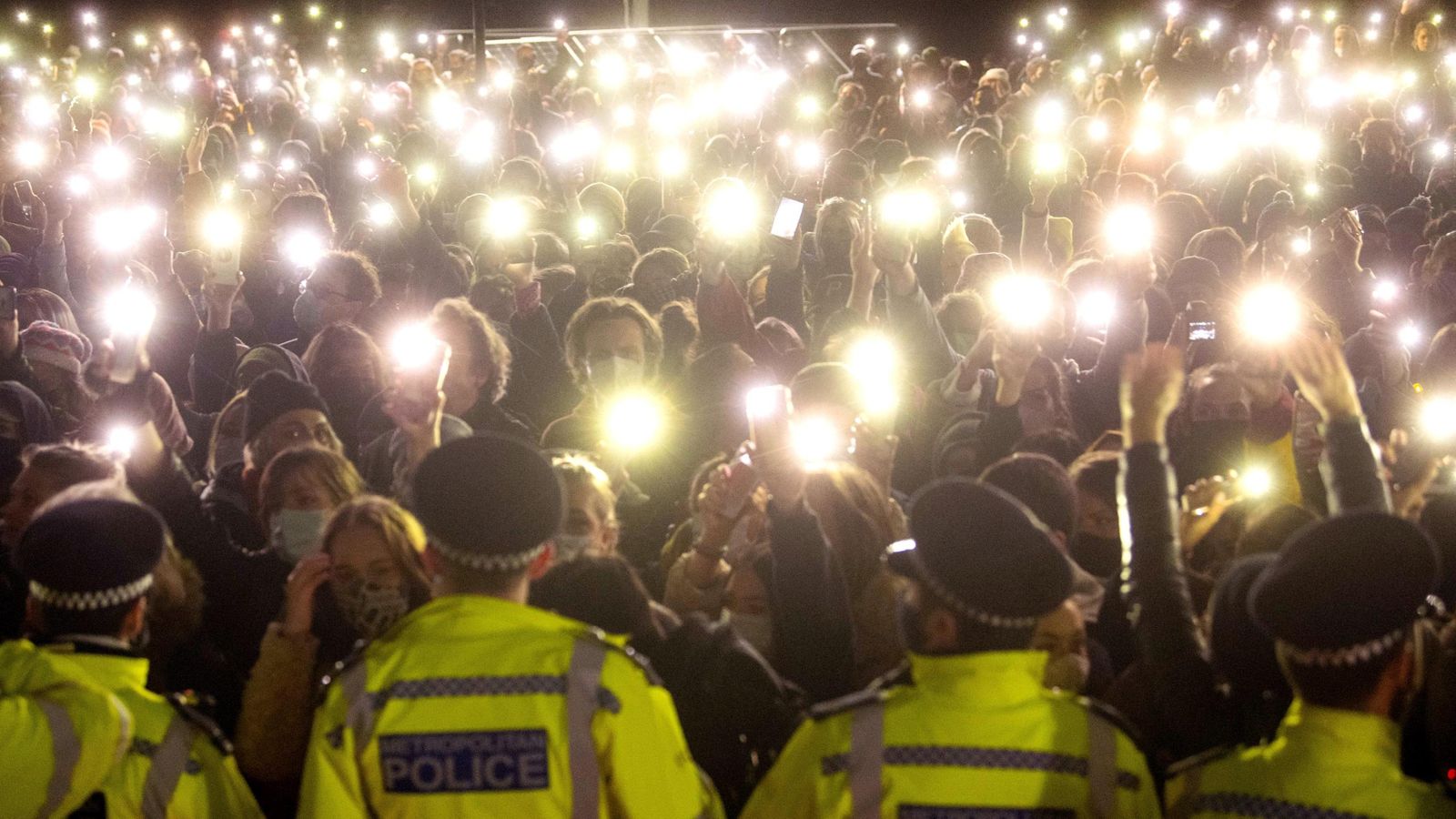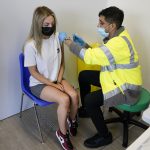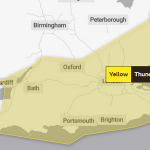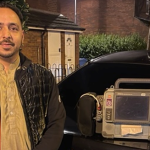Organisers of a planned vigil for Sarah Everard are bringing a legal challenge against the Metropolitan Police force over its handling of their proposed event.
Reclaim These Streets (RTS) proposed a socially distanced vigil for the 33-year-old, who was murdered by former Met officer Wayne Couzens, near to where she went missing in Clapham, south London, in March last year.
The four women who founded RTS withdrew from organising the event on 13 March, which was also intended as a protest about violence against women, and say they faced fines of up to £10,000 each after the force told them it would be an illegal gathering under lockdown rules in place at the time.
A spontaneous vigil then took place on Clapham Common, for which the force came under criticism over its policing before being cleared by a police watchdog.
The Duchess of Cambridge was among the thousands of women who paid tribute and laid flowers at the bandstand that day.
Lawyers for RTS will argue at a two-day hearing that the Met’s handling of the event breached their human rights to freedom of speech and assembly, and are asking the High Court to make a declaration to that effect.
The four, whose case is opposed by the force, are also seeking damages for the alleged breach, which will be donated to charity if their case is successful.
Sarah Everard inquiry will examine her killer’s behaviour and if ‘red flags’ were missed
Sarah Everard: Ex-solicitor general to lead inquiry into policing failures over rape and murder by serving officer
Fewer women trust police after Sarah Everard murder, survey suggests
Anna Birley, one of the four claimants, said in a statement: “We are really pleased to be taking this important case forward.
“When we organised the vigil, we never imagined we would end up in the High Court – we believed then, as we believe now, that we have a very clearly defined right to protest, and that if there was ever a reasonable excuse for exercising this right, it was last March when a young woman was abducted, raped and killed by a then serving police officer.
“At its heart this case is about the police accepting their responsibility under human rights law to facilitate peaceful protest – rather than their consistent attempts to silence and threaten women.
“Women were robbed of their chance to come together in solidarity to mourn Sarah and to stand up to the epidemic of violence against women and girls.
“We hope that the ruling will help set an important precedent that protects our right to come together in protest and solidarity in the future.”
We are in High Court on Wednesday and Thursday against @metpoliceuk defending our human right to protest and Reclaim These Streets. They have objected to the skeleton arguments being shared, but here is our update on the case. https://t.co/lUu1cSj32K pic.twitter.com/HVi6DmTZJG
RTS took urgent legal action in March last year, asking a High Court judge to make “an interim declaration” that any ban on outdoor gatherings under the coronavirus regulations at the time was “subject to the right to protest”.
But the judge declined to grant the group’s request and also refused to make a declaration that an alleged force policy of “prohibiting all protests, irrespective of the specific circumstances” was unlawful.
RTS was set up after the disappearance of Ms Everard prompted a public outcry about women’s safety.
Couzens, 49, was given a whole life sentence, from which he will never be released, in September after admitting her murder.






















